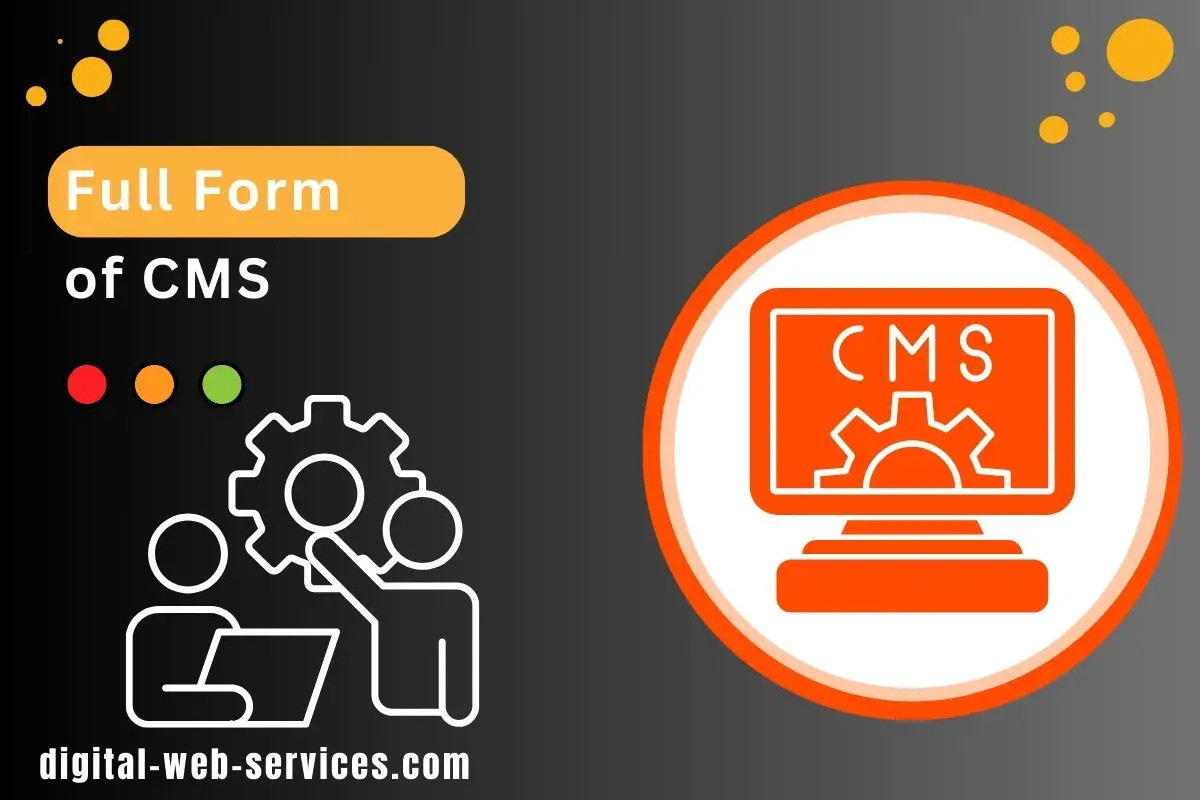
Content Management System or CMS that plays an important role in the efficient management and publication of digital content. However, A CMS is a software application that allows users to create, edit, publish, and manage their digital content without requiring specialized technical or coding knowledge.
This article delves deep into the full form of CMS, along with its key benefits, types, and popular examples, which can help you understand more about the CMS.
What is a Content Management System (CMS)?
The full form of CMS is a content management system, which is a software platform designed to help users create, manage, and modify their web page content without the need for specialized technical skills. It simplifies the process of digital content management by offering a user interface, often accompanied by various functionalities that can boost your content creation and management process.
About Key Components of a CMS
CMS typically consists of the following Key components to enhance the digital content management:
1. Content Creation Tools
CMS tools allow you to create digital content such as text, images, video, and interactive elements. They often include a text editor, media library, and design templates.
2. Content Management Tools
Content management tools also help organize, store, and retrieve content on your website. They contain features for version control, content classification, and metadata management, ensuring that content is easily accessible and manageable.
3. Content Publishing Tools
Publishing tools help you enable the deployment of content across various digital channels. These include scheduling, workflow management, and multi-channel publishing capabilities, ensuring content reaches the intended audience at the right time and with ease.
4. User Management Tools
User management tools help you control access to the CMS and its functionalities. These include your user roles and permissions, authentication mechanisms, and activity logs, ensuring secure and controlled access to your CMS.
What Benefits of Using a CMS?
Using CMS has numerous advantages and benefits, and we have shared some of them:
- Ease of use: A CMS simplifies content creation and management tools, making it easy for users without technical expertise to use.
- Scalability and flexibility: A CMS can scale to accommodate growing content needs and evolving business requirements. It supports a variety of content types and allows for customization to meet specific organizational needs.
- SEO and marketing: A CMS includes built-in SEO tools that can help easily optimize content for search engines, improve visibility, and increase traffic.
What Are The Popular Types of CMS Platforms?
Following are some of the widely used CMS platforms that have revolutionized content management:
1. WordPress
WordPress is one of the most popular CMS platforms. It offers an extensive range of themes, plugins, and customization options, making it suitable for various types of websites. You can use WordPress CMS for free to create your own blog and e-commerce website.
2. Joomla
Joomla is also a versatile CMS platform primarily known for its flexibility and powerful extensions. It caters to a wide variety of websites, from simple blogs to complex e-commerce-type websites.
3. Drupal
Drupal is a highly customizable CMS that website designers and developers love for its robust architecture and scalability. It is considered ideal for large, and complex website creation.
4. Shopify
Shopify is considered one of the best CMS platforms for e-commerce websites. It offers a comprehensive suite of tools for designing, managing, and promoting an online store, making it a popular choice for entrepreneurs and businesses.
5. Magento
Magento is an open-source e-commerce CMS platform that is famous for its flexibility and scalability. Like Shopify, it also offers advanced features for managing online stores, which makes it suitable for businesses of all sizes.
Conclusion
So, what is the full form of CMS? Along with knowing this, here you must have also come to know many other things related to Content Management System (CMS), including its main components, benefits, and types. Implementing a strong CMS will streamline your content management processes, enhance collaboration, and take your digital presence to new heights. Now let me know in the comment what kind of CMS you are using for your website development.
Digital Web Services (DWS) is a leading IT company specializing in Software Development, Web Application Development, Website Designing, and Digital Marketing. Here are providing all kinds of services and solutions for the digital transformation of any business and website.










